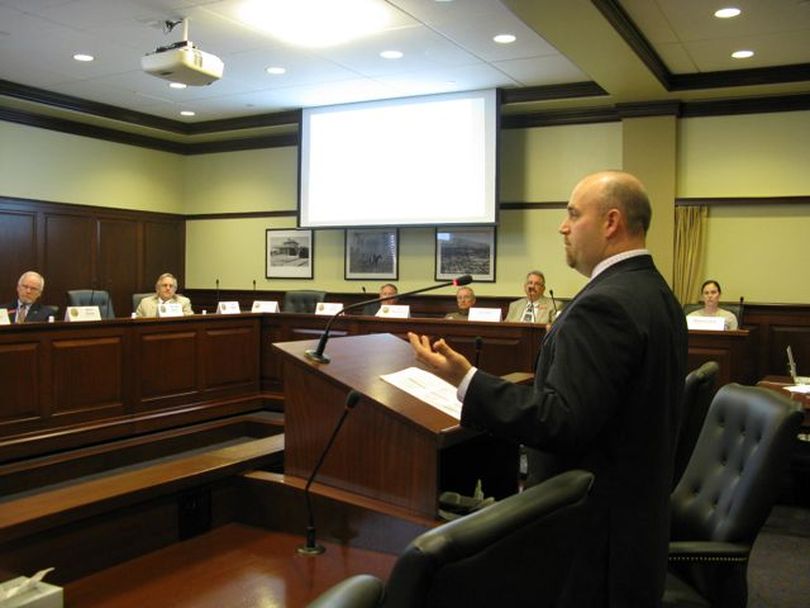Idaho’s current system ‘not working as smart as we could’ for uninsured

Mike Baker of the Idaho Primary Care Association is now briefing the governor's Medicaid working group on Option 3: Expanding Medicaid in Idaho. "You look at the numbers, and this thing, this problem is just ginormous," he told the panel. But, he noted, "We're paying for a lot of these things right now. They're coming out of inefficient systems, they're probably being paid at higher rates. ... I don't think we're working as smart as we could."
He noted a reference earlier in the day to Idaho's medical indigency program as a type of "debtors' prison." "There's funding available to help these folks in our community access the care that they need, and it's up to us to figure out how do we utilize what we're paying now ... to cover the gap," Baker said. "There are all these holes in the system."
He said, "We all know at the end of the day we're going to have some folks that fall through the holes, no matter what program we put together, but the goal here is to reduce the number of people falling through those cracks. ... reduce the cost of their care ... and stop requiring other folks in the community" to cover the costs through cost-shifting.
Baker, who noted that he sees patients who are part of this population every day at the Kootenai County community health center where he works, said, "This really can work, and get us closer to the day where we can say, 'Access to health care is not a problem.'" He said, "We have 65 percent of patients in our clinic are uninsured."
He shared data that for Idaho's mentally ill patients, 95 percent could be shifted to an expanded Medicaid, saving $11 million in state general funds. About 75 percent of AIDS Drug Assistance Program clients would qualify for the Medicaid expansion, saving the state about $800,000. Shifting the uninsured population from the state's indigency program to Medicaid would save millions both for the state and for county property taxpayers. "We know cost-shifting is occurring," Baker said. "This should be a no-brainer decision."
He told the panel, "If your neighbor is healthy and they're able to work, your community starts getting better."
